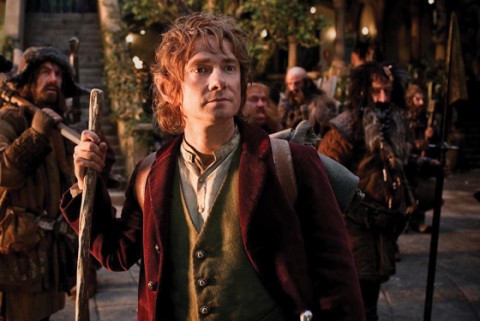Longing for home

"In a hole in the ground, there lived a hobbit.” With that sentence, J. R. R. Tolkien drew us straight into Bilbo Baggins’s home and into a Middle-earth in which home and the loved ones in it matter. The film The Hobbit, produced and directed by Peter Jackson, eventually quotes Tolkien’s opening sentence, but it takes some time to get to that point. It starts, instead, with Bilbo (played with tender humanity by Martin Freeman) recounting some prehistory to explain the expedition that will lead him to the dragon Smaug.
Jackson begins, then, not with home and a hobbit hole but with fiery destruction, war and exile. The dwarves, like the people of ancient Israel, have been doomed to wander in the wilderness, refugees from the Lonely Mountain. These dwarves (led by Richard Armitage playing a magnificent Thorin) are on a quest, not first for gold but for home, and the film plays up the theme of home, alongside more familiar Tolkien themes of adventure and the importance of small, ordinary folk standing against evil. The relational tension resolves when Bilbo expresses to Thorin his sense that the dwarves deserve what he has in the Shire—a home. Jackson has embroidered Tolkien’s text here, but it fits with the story.
Unfortunately, the film does not consistently pursue this theme of home. It seems odd indeed for the filmmakers to inflict 20 minutes of dragon fire on viewers before leading them through that round, green door into Bilbo’s house. Why must we see a little girl watch her doll burning before we are treated to the unexpected party in the wood-paneled hobbit hole? Why start with slaughter instead of a dinner party? Why make war the driving engine of the film?




